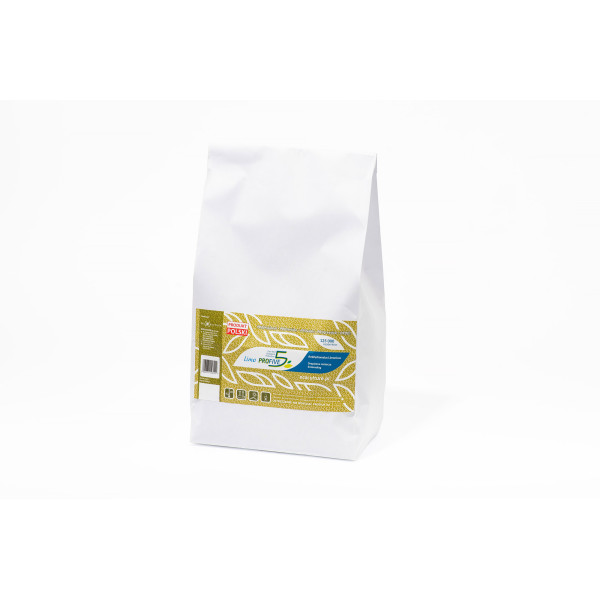What is LIMO PRO5?
Amblydromalus limonicus is a predatory mite from the family Phytoseiidae, used in agriculture as a biological control agent for thrips and whiteflies. It is one of the most commonly encountered entomophages used for biological pest control. Amblydromalus limonicus exhibits high reproductive capacity and can survive for some time without prey, feeding on pollen, making it an extremely effective tool for plant protection. It is active at temperatures as low as 13°C, making it an optimal bioagent for the early winter cycle. It does not cause plant damage and has no negative impact on the environment, making it safer than the use of chemical pesticides.
Life cycle.
The life cycle of Amblydromalus limonicus includes the following stages: egg, larva, nymph, and adult. The female typically lays eggs on the lower side of leaves, which are visible to the naked eye. After a few days, larvae hatch from the eggs and prey on small insects such as thrips larvae and others. After several molts, the larvae transform into nymphs, which continue actively hunting pests. The nymphs then develop into adult individuals, which also feed on pests and reproduce.
Pests.
Amblydromalus limonicus preys on various pests, including thrips, whiteflies, spider mites, and other small insects, but it prefers the first two. Therefore, it is used for controlling greenhouse whitefly (Trialeurodes vaporariorum), tobacco whitefly (Bemisia tabaci), western flower thrips (Frankliniella occidentalis), onion thrips (Thrips tabaci), Heliothrips haemorrhoidalis, and others.
Crops.
Amblydromalus limonicus is used in a wide range of crops, including:
• Vegetable crops: cucumber, pepper, eggplant, zucchini, etc.
• Fruit crops: strawberry, raspberry, blackberry, blueberry, etc.
• Fower and ornamental crops: rose, chrysanthemum, gerbera, marigold, calla lily, anthurium, etc.
It is not recommended for use on tomato plants! This is because it has difficulty moving and pursuing its prey on plants with dense hairy aboveground organs.
Application.
It is recommended to introduce the mites at an early stage of plant growth to allow them to effectively control pests throughout the season. Prior to introducing the entomophage into your greenhouse, thoroughly mix the product (cardboard tube or paper bag) by rotating it for several minutes around its axis. This will ensure a more even distribution of the predator and thereby increase its effectiveness.
Amblydromalus limonicus is introduced onto the crop by gently sprinkling the carrier material containing the entomophages onto the substrate or directly onto the plant leaves. Regardless of the method of introduction, temperature and humidity should be monitored to provide optimal conditions for the survival of the biological control agent. The entomophage is most effective within a temperature range of 13-25°C. If temperatures rise above 25°C, it is recommended to replace it with Amblyseius. The mite is also sensitive to relative humidity below 70%.
Application rates.
Optimal application rates of Amblydromalus limonicus may vary depending on factors such as the type of crop, pest species, infestation levels, presence of other control methods, etc. Typically, these rates can range from 50 to 250 individuals of the entomophage per 1 m². The procedure should be repeated every 7-14 days.
Please note that optimal application rates may vary depending on various factors, so before using Amblydromalus limonicus, it is recommended to consult with experts from our company who will help develop an optimal protection strategy for your specific case.
Storage.
Storage of Amblydromalus limonicus should follow specific guidelines to ensure maximum effectiveness of biological control. Here are a few recommendations:
• The maximum storage period for the product from the time of receipt is 1-2 days.
• Store in a horizontal position in a cool place protected from direct sunlight, at a temperature of 12-14°C. It is important to remember to avoid contact with pesticides during the storage of the entomophages.
• Storing Amblydromalus limonicus in a refrigerator or freezer is prohibited as it may lead to the death of the entomophages.
There are no reviews for this product, be the first to leave your review.

